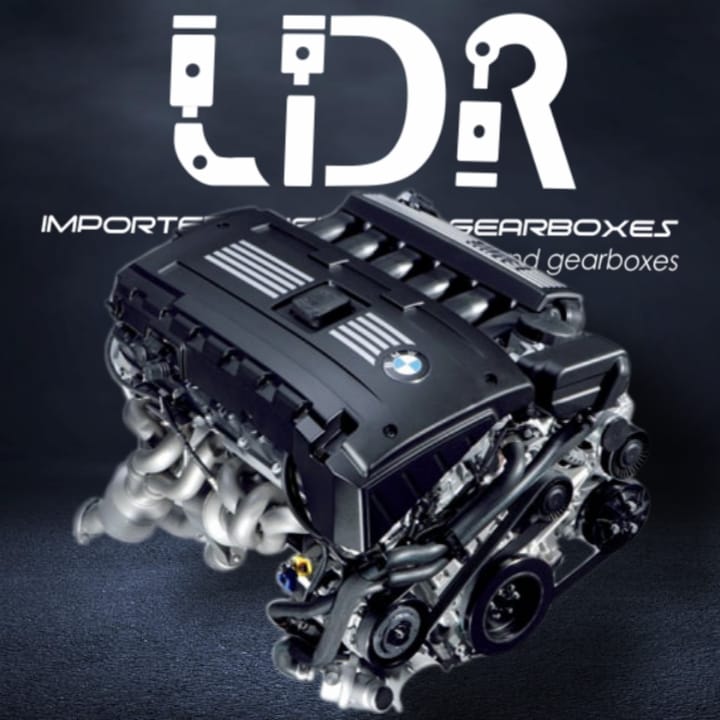The BMW 318ti: A Blend of Style, Comfort, and Efficiency
The BMW 318ti: A Blend of Style, Comfort, and Efficiency
Blog Article
Trick Features to Search For When Buying an Engine for Automotive Applications
When considering the acquisition of an engine for automotive applications, a number of key functions necessitate cautious analysis to guarantee ideal efficiency and functionality. From power and efficiency capacities to fuel efficiency, adherence, and sturdiness to discharges standards, each element plays a crucial duty in determining the engine's viability for specific automotive requirements.
Power and Efficiency
When picking an automobile engine, purchasers prioritize power and performance to ensure optimum driving experience and effectiveness. A well-performing engine not only supplies power efficiently yet likewise operates smoothly throughout different speed ranges and driving problems.
Purchasers usually consider the engine's torque output alongside its power score. Torque, measured in pound-feet (lb-ft) or Newton-meters (Nm), mirrors the engine's rotational force, influencing the car's ability to tow, climb slopes, and accelerate from grinding halt. An equilibrium between power and torque is essential for attaining a responsive and versatile driving experience. Furthermore, elements such as engine hybrid, turbocharging, and variation technologies play substantial roles in boosting both power and efficiency levels. Inevitably, choosing an engine that supplies a potent mix of power and performance makes certain a reliable and rewarding driving experience. bmw 318ti.
Fuel Performance
Enhancing gas performance is a critical factor to consider for customers when evaluating automobile engine choices. Modern engines with attributes like straight gas injection, turbocharging, and variable valve timing can substantially boost fuel effectiveness by improving burning procedures and reducing energy loss.

Longevity and Dependability
Achieving resilient performance and trustworthy operation is crucial for consumers reviewing the toughness and dependability of automotive engines. When taking into consideration an engine for vehicle applications, resilience refers to the engine's capacity to withstand wear, stress and anxiety, and extreme operating conditions over an extensive period. Integrity, on the other hand, indicates that the engine can regularly perform its designated function without unanticipated break downs or failings.
Consumers need to look for engines created with premium products and accurate design to ensure durability. Elements such as crankshafts, bearings, and pistons need to be resilient to manage the engine's power output without premature wear. In addition, engines geared up with innovative air conditioning systems, efficient lubrication, and durable purification mechanisms tend to display greater degrees of integrity.
Regular upkeep and adherence to supplier recommendations are also crucial consider protecting an engine's durability and reliability. By complying with upkeep timetables, making use of advised liquids, and dealing with any type of problems promptly, consumers can make the most of the life-span and efficiency of their auto engines. Inevitably, focusing on toughness and dependability in engine selection can lead to a more satisfying ownership experience with less unforeseen disruptions.
Emissions Compliance
Making certain conformity with discharges regulations is an important element of evaluating auto engines for eco mindful consumers. With raising concerns about air quality and ecological influence, stringent emissions criteria have actually been established globally to reduce harmful pollutants launched right into the atmosphere. When purchasing an engine for auto applications, it is necessary to consider its discharges compliance to lessen the carbon impact and abide by lawful requirements.
Modern engines are outfitted with sophisticated emission control modern technologies such as catalytic converters, exhaust gas recirculation (EGR) systems, and careful catalytic decrease (SCR) to decrease hazardous exhaust gases like nitrogen oxides (NOx), carbon monoxide gas (CO), and hydrocarbons (HC) These systems play an important role in ensuring that the engine satisfies the specified emissions standards and runs within allowable limitations.

Cost-effectiveness
When considering automotive engine acquisitions, reviewing cost-effectiveness is extremely important for customers looking for both performance and value. It incorporates the total costs associated to maintenance, gas intake, and prospective repair work over the engine's lifespan.
One key facet of cost-effectiveness is gas effectiveness. Engines that are designed to maximize gas economic situation can cause substantial financial savings with time, particularly for individuals that drive regularly or over cross countries. In addition, thinking about the accessibility and affordability of extra parts and maintenance can add to the overall cost-effectiveness of an engine. Making certain that repair and maintenance are obtainable and sensible can prevent unforeseen financial worries down the line.

Conclusion
In final thought, when acquiring an engine for automotive applications, it is important to take into consideration vital features such as power and performance, fuel resilience, dependability and effectiveness, emissions conformity, and cost-effectiveness. These variables are essential in ensuring that the engine meets the requirements of the vehicle and runs properly in numerous driving problems - bmw 318ti. Making a notified decision based on these criteria will ultimately bring about a effective and successful automotive engine acquisition
From power and efficiency abilities to fuel adherence, durability, and effectiveness to emissions standards, each aspect plays a vital role in determining the engine's suitability for particular auto demands. Engines designed to run on different gas such as electrical power, crossbreed systems, or biofuels can offer enhanced gas economy and reduced Going Here emissions compared to typical gas or diesel engines. Consumers ought to thoroughly think about the fuel performance ratings and innovations included into automotive engines to make enlightened getting choices that align with their priorities for expense financial savings and sustainability.
When thinking about an engine for auto applications, durability refers to the engine's ability to stand up to wear, stress, and extreme operating problems over an extended period.In verdict, when acquiring an engine for automobile applications, it is critical to consider essential attributes such as power and efficiency, fuel longevity, integrity and efficiency, emissions compliance, and web link cost-effectiveness.
Report this page